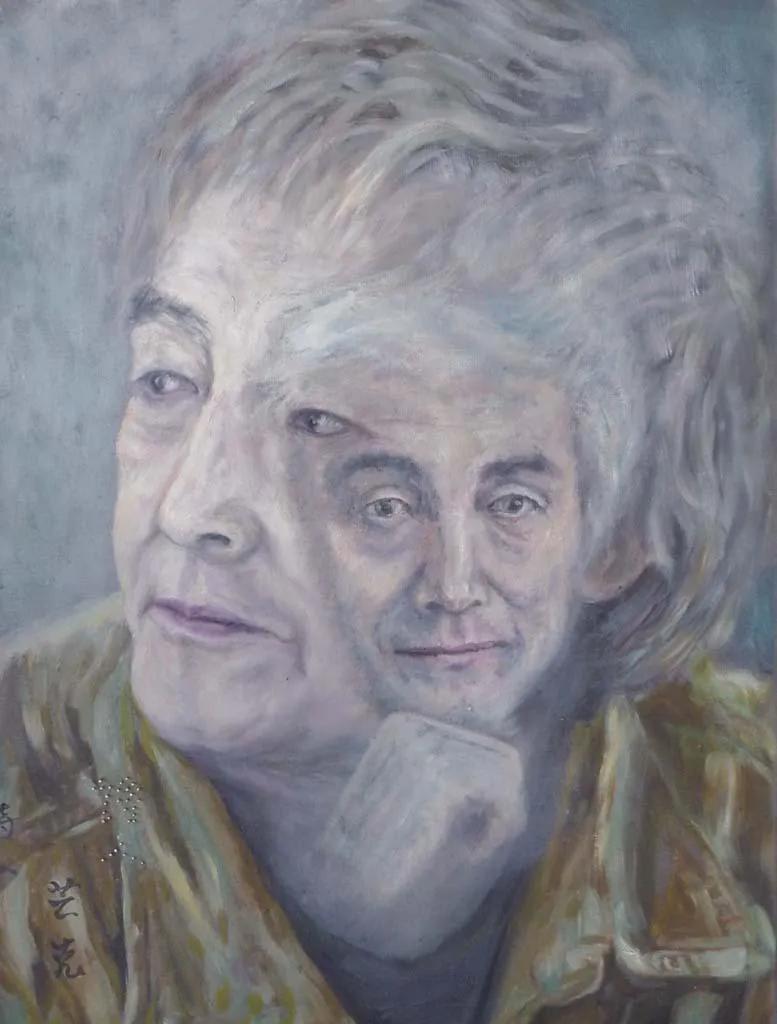Poet Munk is 71 years old. One of his photographs, with a thin face and a slight cynical smile at the corners of his mouth, is a bit like He Yong (a rock singer and the one who sang "Bell and Drum Tower") when he was young.

In 1978, he co-founded Today magazine with Kitajima, and is one of the representatives of obscure poetry. Published a collection of poems such as "Sunflowers in the Sun".
He had a junior high school education in his lifetime, joined the team in Baiyangdian for 7 years, returned to the city as a worker for 1 year, and then was fired from the factory because he ran a magazine, so he was unemployed, wrote poetry, and ran many countries. In 2004, he began to paint, it is said that it is for life, before he had no training in painting, but he successfully transformed, saying that he sold paintings for a living.
Let's start with two of his poems.
Sunflowers in the sun
Did you see that
Did you see that sunflower in the sunshine?
You look at it, it doesn't put its head down
Instead, turn your head behind you
It turned its head away
It was as if it was for a bite to break
That's on its neck
The rope that held in the hands of the sun
You see the tree with its head held high
Are you glaring at the sunflowers of the sun?
Its head has almost covered the sun
Its head even when there is no sun
It's still shining
Did you see that sunflower?
This poem can be said to be Munch's masterpiece, and it is easy to understand. The imagery of the sunflower is a symbol of a certain personality. Although the sun was fierce, the sunflower turned its head to bite the rope around its neck, and although it was weak, it did not bow its proud head to the powerful force, and it was resolute. It has a strong spirit of resistance, glaring at the majesty of the sun, even overpowering the sun's might. It has its own aura, and even without the sun, it still shines brightly. Written in 1983, this poem literally enlivens the sunflowers, and the spirit of defiance is engraved in the bones, and it is a testament to that era. Singer Ma Tiao, who composed and sang the poem, everyone had the opportunity to listen to it.
Close your eyes
Bury yourself
That way you won't see it again
The bright red flower of the sun
How to be pinched down
Thrown to the ground
And how it is night
Viciously stomp on it
Then you will be isolated from the world
You won't feel sad anymore
Oh, us people
That's how we end up
You come from darkness
You will also disappear in the darkness
The poem has a slight pessimistic color, and if you close your eyes, you won't see the bloody reality when you open your eyes. Or is it a reluctance to compromise with reality? Without the strength to fight reality, it is better not to open your eyes. Is this a method of spiritual victory? Or is it a resolute attitude of non-cooperation? There doesn't seem to be a point in the poem. "You come from the darkness / You will still disappear in the darkness" is a black fact that none of us can escape from its control. Bury yourself and break with the real world. The poem seems to have some kind of metaphor in it, and when you read it repeatedly, you seem to be able to experience the poet's decisive inner world.
Munch picked up the paintbrush and said that by coincidence, Aidan, Ai Qing's son, bought him a canvas and paint, so he began to paint. From the beginning of 2004, he painted for several months, and then held an exhibition at the end of the year, and actually sold them all. He also paid a down payment on a home in Beijing with money from the sale of paintings. It's legendary. The poet has hills in his chest!
Now that he has a wife and children, he himself said: Maybe one day he can't paint and start writing poetry again?
His poems, you have the opportunity, you can find a read. Read his poems, and then you can imagine him as a person.
(Image from the Internet)